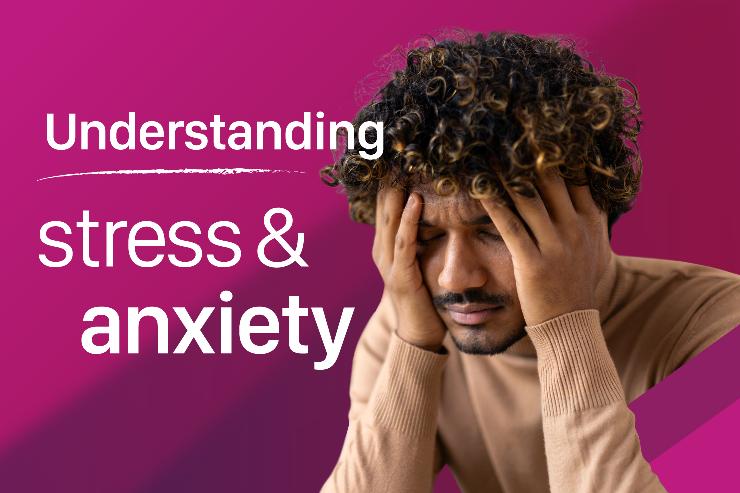
Understanding the Difference and How to Cope
In today’s fast-paced world, it’s common to feel overwhelmed, tense, or restless. Whether it’s meeting a deadline, managing family responsibilities, or navigating major life changes, many people struggle to tell whether what they’re feeling is stress or anxiety. While these two experiences often overlap, understanding the difference between stress and anxiety can help you better manage your mental health and take the right steps toward relief.
What is Stress

Stress is your body’s natural response to an external challenge or demand. It’s often triggered by a specific situation—like an upcoming presentation, financial difficulty, or conflict with a loved one. In small doses, stress can actually be helpful. It sharpens focus, boosts motivation, and prepares your body to respond to challenges.
However, when stress becomes chronic—meaning it persists over time—it can take a toll on your body and mind. Physical symptoms might include headaches, muscle tension, fatigue, and changes in sleep or appetite. Emotionally, stress can cause irritability, difficulty concentrating, or feeling on edge.
What is Anxiety

Anxiety, on the other hand, is more than a reaction to a specific event—it’s a persistent feeling of worry, fear, or unease that often lingers even when there’s no clear reason for it. While occasional anxiety is a normal part of life, ongoing or excessive anxiety can signal an anxiety disorder.
Anxiety tends to manifest in both the body and the mind. You might experience a racing heart, shortness of breath, restlessness, or difficulty sleeping. Mentally, anxiety often involves intrusive thoughts, excessive “what if” thinking, or an inability to relax. Unlike stress, which fades when the situation improves, anxiety can persist long after the stressor is gone.
Key Differences Between Stress and Anxiety
| Aspect | Stress | Anxiety |
|---|---|---|
| Cause | External (work, relationships, deadlines) | Internal (persistent worry, fear, or dread) |
| Duration | Temporary—ends when the stressor resolves | Persistent—continues even without a clear cause |
| Emotions | Frustration, overwhelm, irritability | Fear, dread, apprehension |
| Physical Symptoms | Headaches, tension, fatigue | Racing heart, restlessness, sleep issues, bite nails, fidget, appetite changes |
| Focus | Concern about the present challenge | Concern about the future or “what ifs” |
When Stress Turns Into Anxiety
Stress and anxiety are closely connected. Prolonged or unmanaged stress can trigger anxiety symptoms, especially if your body never gets the chance to return to a calm state. If you find that your worries are constant, your mind feels restless, or physical symptoms persist even during calm periods, anxiety may be taking root.Symptoms
Healthy Ways to Cope
Whether you’re dealing with stress, anxiety, or both, there are practical steps you can take to support your well-being:
- Practice relaxation techniques: Deep breathing, meditation, and mindfulness can help calm the nervous system.
- Get moving: Physical activity releases tension and boosts mood-regulating chemicals like serotonin and endorphins.
- Set boundaries: Learn to say no and prioritize your own needs to avoid burnout.
- Stay connected: Talking to a trusted friend, family member, or counselor can offer perspective and comfort.
- Seek professional help: If anxiety or stress interferes with your daily life, therapy can provide tools to manage symptoms and improve resilience.
Final Thoughts
While stress and anxiety share similarities, understanding the distinction helps you respond effectively. Stress is a natural part of life—but when it becomes overwhelming or transforms into persistent anxiety, it’s important to take action. By tuning into your body, recognizing your limits, and seeking support when needed, you can regain a sense of balance and control.
Remember: You don’t have to navigate it alone. Help is available, and healing is possible. Seek help from a therapist http://healingheartsmhs.com, support from a friend or family member.
